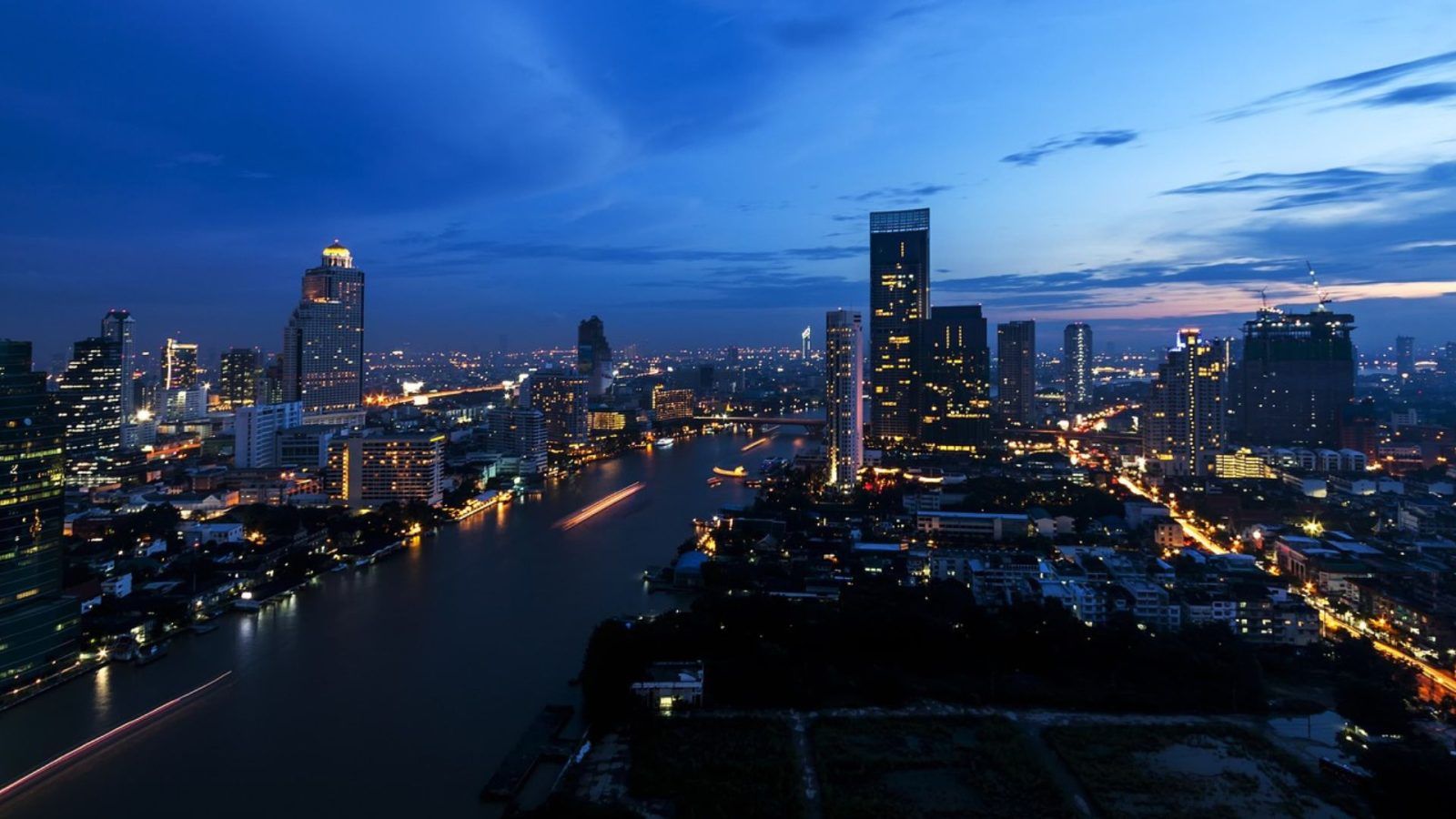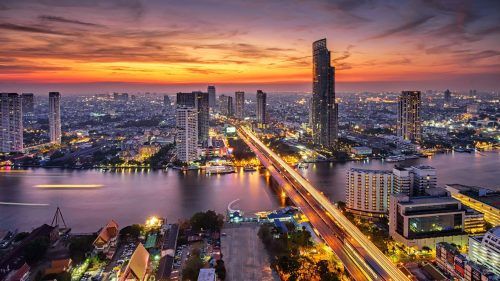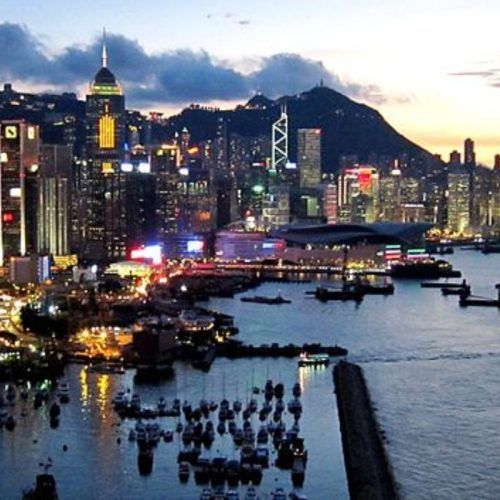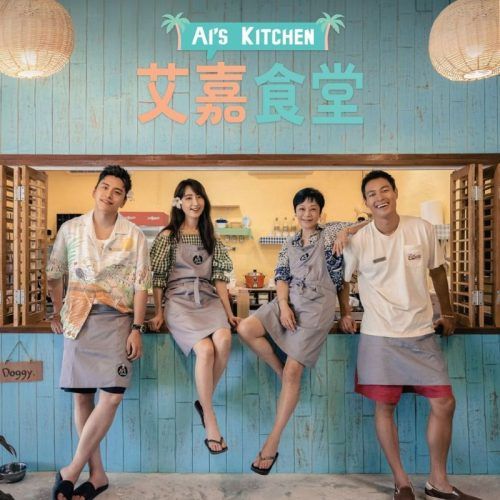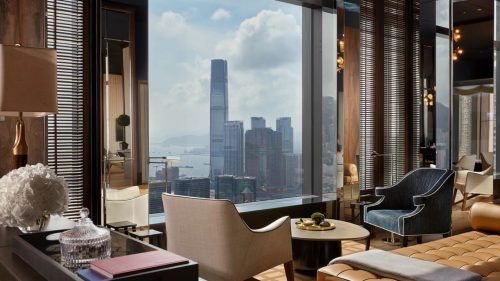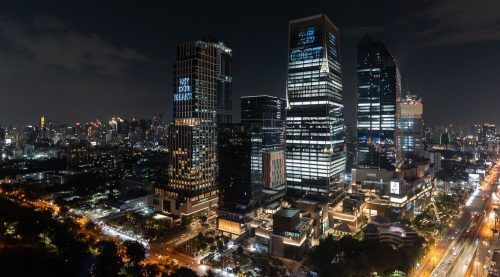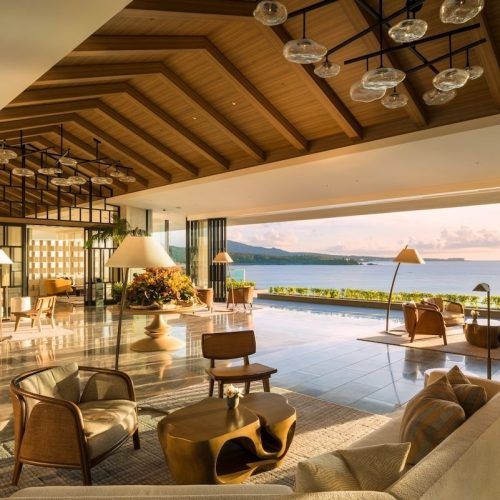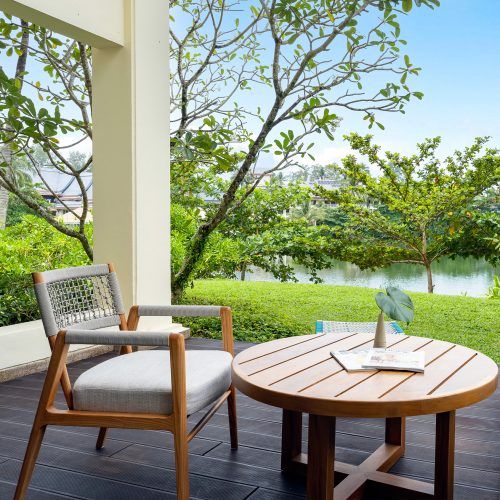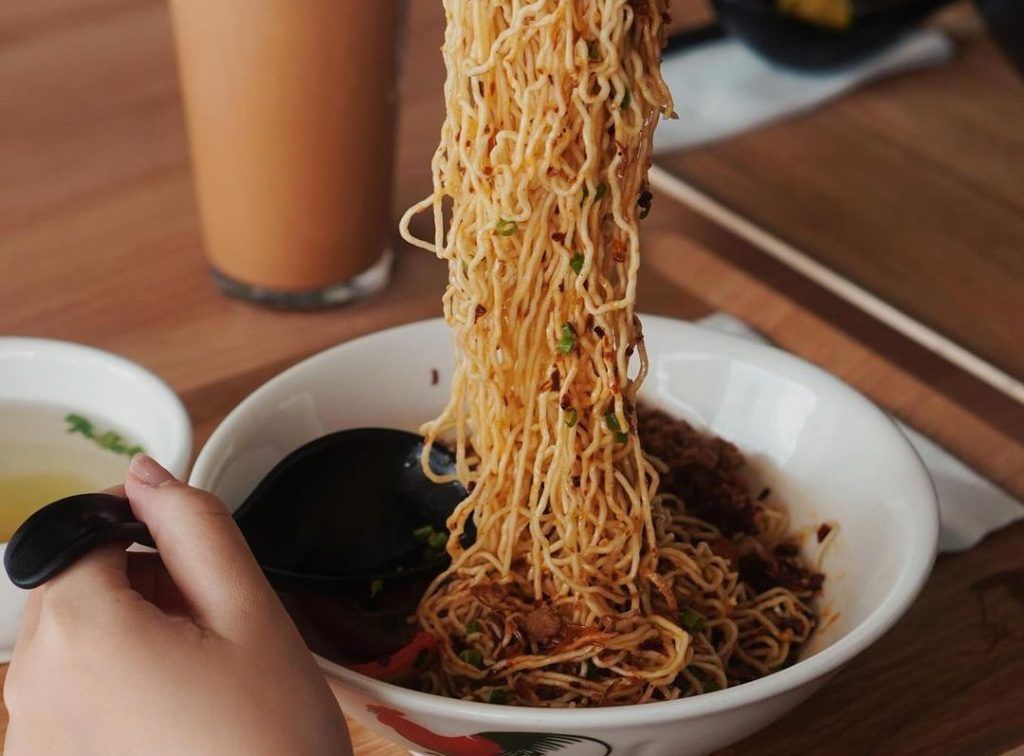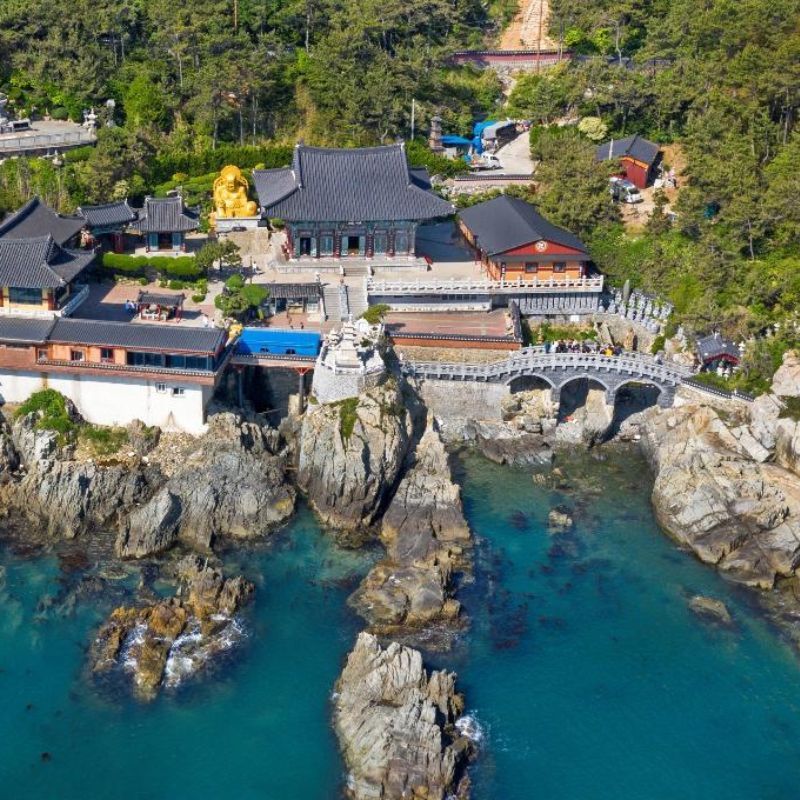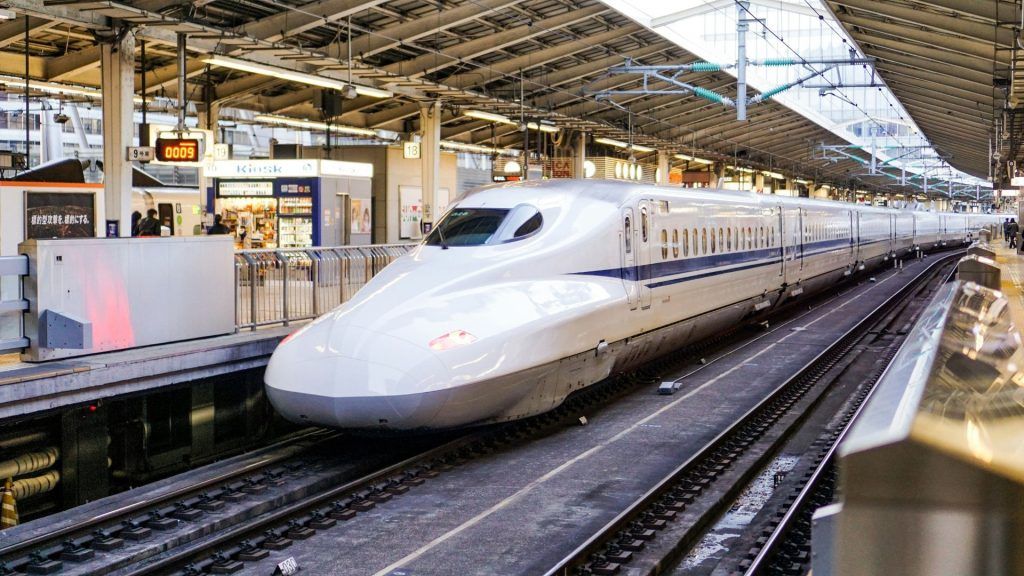Hong Kong is one of the world’s most expensive cities, meanwhile, Bangkok is a delight for all strict-on-budget travellers. Hong Kong’s always headlining the list of the world’s most expensive places, as city folks strive hard to keep themselves afloat in this luxury cosmopolitan. After almost emptying their pockets to afford the city’s lifestyle, Hongkongers often look for affordable options to satiate their wanderlust. That’s when Thailand’s capital comes to their rescue. Offering laidback street life, warm beaches, vivid nightscapes and more on a budget, Bangkok is perfect for an inexpensive weekend escape for Hong Kong folks. Hongkongers, if you’re planning to visit Bangkok for a weekend getaway, we’ve curated a detailed Hong Kong vs Bangkok guide comparing both cities’ travel costs, dining, shopping and nightlife.
Boasting lip-smacking gastronomical delights at the world’s best Michelin-star restaurants, fancy luxury retail outlets, lush abodes with skyrocketing costs and a host of other recreational joys like hotels, spas and more – Hong Kong isn’t for the weak-hearted. According to Mercer’s 2024 Cost of Living City rankings, Hong Kong is the most expensive city in the world for expats. On the other hand, Bangkok offers you a luxurious vacation without burning a hole in your pocket. According to money.co.uk, Bangkok sits atop the list of affordable luxury travel destinations with a budget score of 9.49/ 10 which factors in the cost of Michelin star meals, five-star hotel stays, luxury car hiring and spa hotel costs.
Here’s a detailed breakdown of how much it will cost to spend a weekend in Bangkok vs Hong Kong.
What’s the cost of spending a weekend in Bangkok vs Hong Kong?
Bangkok vs Hong Kong: Dining scene
Hong Kong: From local street fare to Michelin-star dining
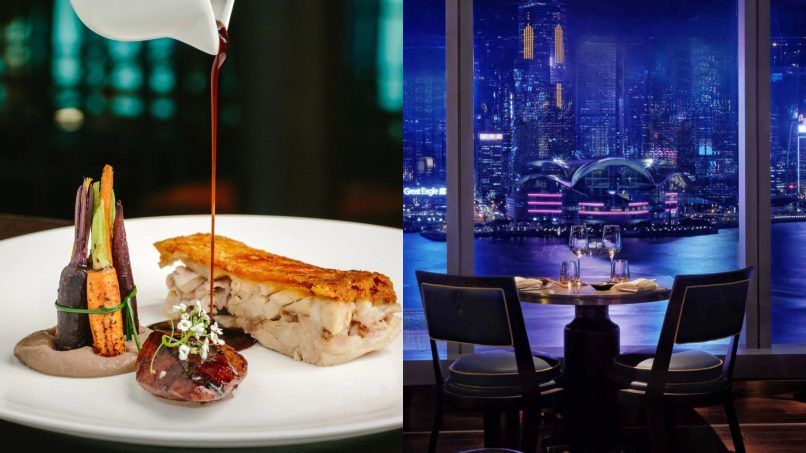
Understanding the price range of Michelin-star outlets
If a person’s bored of Hong Kong’s dining scene, they’re bored of life. Hong Kong’s culinary scene screams supremacy. Awash with tantalising local street food markets and opulent Michelin-star dining experiences, the city’s exotic gastronomical flare appeals to everyone. Did you know Hong Kong has more than 200 Michelin-star restaurants as of 2024? From brunch spots like Porterhouse, Zuma, Casa Lisboa and whisk to rooftop bars like Cardinal Point, Aqua, Ozone, Kaboom, Wav and more, there are plenty of options to indulge in over the weekend.
For those unversed, the latest reports reveal that Hong Kong is the third-most expensive city in the world for Michelin-star dining. The median price of Hong Kong’s costliest tasting menus is USD 266 or about HKD2,080.
Here’s a tentative cost of dining at Hong Kong’s Michelin-star restaurants, from lowest to highest:
1. Lowest price: HKD 100 or less
2. Lower-mid price: Between HKD 100 TO HKD 800
3. Upper-mid price: Between HKD 800 to HKD 1,600
4. Highest price: Above HKD 1,600
Hong Kong’s street food markets and prices
However, if you want to experience Hong Kong’s local food culture and experience the vibrant street food scene, visiting the city’s renowned food markets is a must. Temple Street Night Market, Sai Kung Seafood Street, Sham Shui Po Cooked Food Centre, Mong Kok Night Market, and Graham Street Market among others are Hong Kong’s best night markets.
Some of the popular street delicacies include skewers of bacon-wrapped meat, fried chicken, dim sums, wontons, steamed fish balls, ban bao (steamed buns), deep-fried tofu, fresh sushi, roasted duck and sweet Hong Kong egg waffles and the list goes on. While the quality and cost of food varies from market to market, the prices generally start around HKD 20 a dish and go no higher than HKD 100.
Moreover, there are multiple hole-in-the-wall restaurants offering rice or noodle dishes that can cost around HKD 25 to HKD 30.
Where to go drinking in Hong Kong and how much it costs?
From craft beer bars and speakeasies to Spanish gin joints, Italian cocktail digs and elegant hotel bars – Hong Kong has the finest drinking scenes. A weekend in Hong Kong is incomplete without trying out delightful concoctions or sharing hearty laughs over beers. You can either visit the city’s best bars where cocktail connoisseurs churn out the most interesting amalgamations. Or, you can visit hole-in-the-wall local spots while witnessing the city come alive at night.
As for the best bars in Hong Kong, we recommend you try places like the Penicillin, Aqua, The Diplomat, The Savoury Project and Terracotta. Hong Kong is also home to bars that have made it to the World’s 50 Best Bars list. Alcohol in proper bars here is quite expensive so it’s poor value for budget travelers. A cocktail can easily cost anywhere from 150-200 HKD or more on average. However, some bars can serve very expensive cocktails like a Negroni for HKD 1,250 and a Sazerac for HKD 1,800.
As for beer, a pint of domestic beer (0.5 litre draught) can cost HKD 60. Even the imported Beer (0.33 litre bottle) costs more or less the same.
That’s Hong Kong’s dining scene for you in a nutshell.
Bangkok: Explore the city’s countless street food spots to high-end restaurants
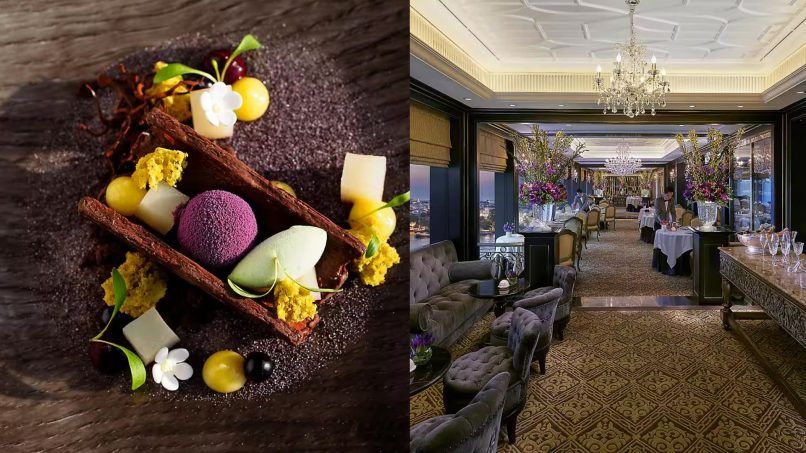
A city inextricable linked with street food
The best part about walking the streets of Bangkok is blessing your gluttonous souls with countless carts, stalls and hole-in-the-wall places serving flavoursome dishes. Bangkok street food is the heart and soul of the city’s culinary culture, and the most popular local dishes include pad thai, mango sticky rice, tom yum goong, khao tom pla, boat noodles, crab omelette, cha yen and pla pao.
If you’re a tourist navigating the Bangkok streets for the first time, let’s acquaint you with our top favourite street food spots. Yaowarat Road, Wanglang Market, Victory Monument, Banthat Thong Road and Silom Soi 20 are non-negotiables when it comes to Bangkok’s local dining scene.
As for pricing, most famous street foods cost anywhere around 30 to 100 baht. If you’re a food enthusiast wanting to try out a variety of local delicacies, we suggest you consider allocating around 300 to 400 baht per day. This will cover everything from snacks, and main dishes to even desserts.
Bangkok’s 7-Eleven: A go-to for cheap food for tourists and locals
We’re sure you must’ve heard of the famed 7-Eleven stores spread across Bangkok, offering budget snacking and beverage options. It’s not just a convenience store, but rather an important part of everyday life and a part of Thai culture. You’ll get delicious onigiri (rice balls) for around 20 baht, toasted cheese sandwiches for 30 baht, simple rice meals for around 40 baht as well as local beers for 50 baht.
A guide to Michelin star and high-end restaurants in Bangkok
From homesick expats and wandering tourists to curious locals – Bangkok satiates everyone’s appetite with its exquisite bites. The city has an incredible fine dining scene and some of the best Michelin-star restaurants in the world. Do you know there are over 30 restaurants that have received Michelin stars in Bangkok? But which ones are the best? Find out below:
- Le Normandie: A famous French fine dining restaurant in Mandarin Oriental Bangkok.
Price: 2,900 – 7,000 baht for set menu
- Mezzaluna: An amazing Japanese-French fusion cuisine outlet in the iconic Lebua Hotel.
Price: 9,000 – 12,000 baht for set menu
- Sühring: Known for traditional German recipes in a contemporary way. It is located in the Yan Nawa district.
Price: 5, 500+ baht onwards
- Sorn: Southern Thai restaurant with Malaysian and Javanese influences. Located at Klongton Khlong Toei, Bangkok.
Price: 6,500 baht onwards
- 80/20 Eighty Twenty: A hai fine dining restaurant known for churning local food into world-class gourmet. Located at Bang Rak, Bangkok.
Price: 5,000 baht onwards
If you’re looking to enjoy luxury on a budget, there are a host of affordable Michelin-star dining options as well. These include Blue by Alain Ducasse, Maison Dunand, Nahm and Côte by Mauro Colagreco. The average price range of these restaurants is about 2,000 to 5,000 baht.
Hong Kong vs Bangkok Dining Scene: Verdict
If you take into consideration the Michelin-star restaurants in both Hong Kong and Bangkok, the latter is slightly cheaper in price. While the most expensive Michelin eateries in Hong Kong are priced at HKD 1600 and above, the ones in Bangkok can be afforded at 5000 to 6000 baht (which is around HKD 1,100 to HKD 1,400).
As for local food joints, even relatively expensive street food dishes in Bangkok cost 100 baht (which is around 23 HKD). This is more affordable than the starting price range of Hong Kong street food at HKD 30. Now that’s a massive difference.
So, you’ll definitely save a lot of bucks while exploring Bangkok’s culinary scene as compared to Hong Kong.
Bangkok vs Hong Kong: Transport
Hong Kong: MTR, buses, ferry, trams and more
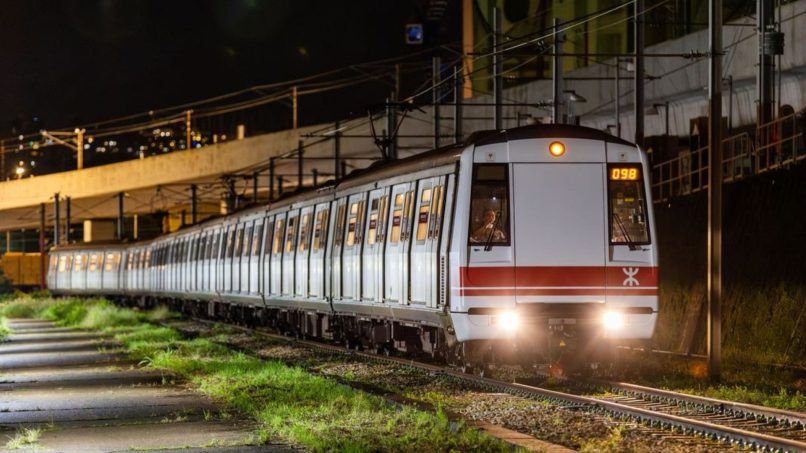
How to travel hassle-free in Hong Kong? All about the Octopus Card
Before diving into the various modes of public transport and their fares, let’s introduce you to the Octopus Card – the ultimate travel card used for nearly all public transit. You can buy this card at the train ticket counter at the airport. The card already comes with a balance of HKD 50 HKD, making it even more convenient. You can use it across various modes of transportation, including the MTR, trams, and even at convenience stores.
So, prepare your octopus cards in advance for a comfortable public transport experience.
MTR
MTR is the pulsing beat of Hong Kong’s public transport system, without which the city’s commute will be impaired. The MTR (Mass Transit Railway) is spread across multiple rail lines across Hong Kong Island, Kowloon, and the New Territories. Services typically commence around 6 am and run until midnight or 1 am. One can expect the trains to arrive every 2 to 4 minutes during peak hours or every 4 to 6 minutes otherwise. There’s a dedicated MTR Mobile app as well as an MTR website for one’s perusal.
Fares: Starting from HKD 4.5 for 1 station and HKD 22 for all stations. Check the Hong Kong travel map first and ensure there’s enough balance in your Octopus card to reach the destination.
Airport Buses
The double-decker buses that take you right into the city centre in about an hour, Airport buses are a cheaper alternative to enjoy Hong Kong’s scenery while travelling.
Fares: Around HKD 40 to HKD 50.
Tram Ding-Ding
If you want to parade around the city in a fun way, this special rail bus should be your pick. It has two decks, upper and lower. It’s one of the oldest modes of transport in Hong Kong, dating back to 1904. As of now, the tram runs from east to west and west to east on Hong Kong Island.
Fare: Starting from HKD 3 to HKD 22 depending on the distance.
Taxi
If you want to explore places not in the vicinity of MTR or bus stations, taxis are a comfortable bet (however, it does cost a lot more). Taxis cover almost all the nooks and crannies of Hong Kong quickly.
Fares: Starting fares for urban taxis are around HKD 29, as well as HKD 25.50 for New Territories taxis and HKD 24 for Lantau taxis. There are also incremental charges beyond the first two kilometres after flag-fall.
Other modes of transport also include Star Ferries, bikes and rickshaws.
Bangkok: BTS Skytrain, MRT subway systems and more
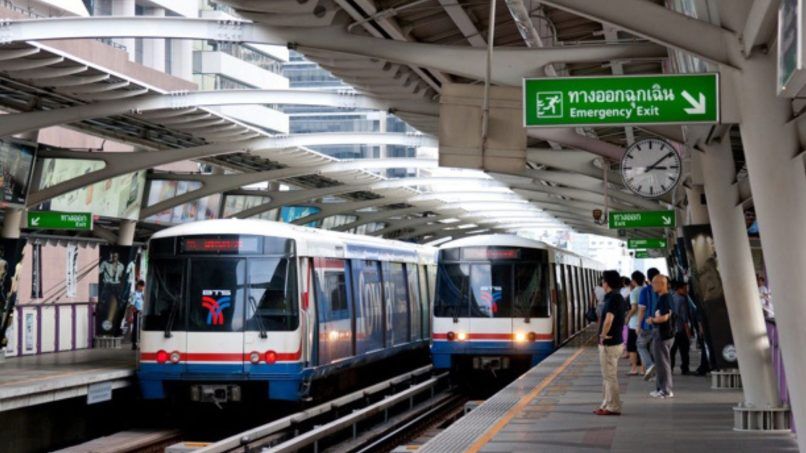
Once you understand how the city’s extensive public transport system works, travelling will be a cakewalk. While BTS Skytrain and MRT subway systems dominate the public transport systems, app-operated services like Grab Taxis and Go Bikes have also garnered massive popularity. Let’s familiarise you with each one:
BTS Skytrain
Skytrain is an easy and efficient way to move between busy areas, including the jam-packed Sukhumvit Road. Siam Station is the heart of the Skytrain system, connecting Sukhumvit (light green on maps) and Silom (dark green on maps) BTS lines. The BTS trains operate from 5 am to 12 am, running every 5 to 10 minutes.
Fares: Range from 17 to 62 baht depending on the distance. You can purchase a one-day pass for 24 hours of unlimited rides for 150 baht.
MRT subway systems
The traditional subway in Bangkok is more often used by locals than tourists, as it doesn’t give access to popular tourist destinations. It currently operates on two lines, the busiest Blue Line and the Purple Line. Yellow and Purple monorails are also available. MRT runs from 6 am until midnight, arriving every 5 to 10 minutes.
Fares: Range from 14-42 baht depending on the distance.
Taxis
Whizzing through the highways across the city, Bangkok has a well-kept network of air-conditioned taxis. Keep in mind to always travel by taxi metre and refuse to take the ride if the driver asks for a random amount.
Fares: The price starts from 35 baht for the first two kilometres, followed by 5 baht for every additional kilometre. A ride around the city can cost anywhere between 80 to 200 baht.
Tuk Tuk
To have a quintessential Thailand experience, you have to hop on a tuk-tuk. Bargain your way to get a cheap ride that’ll give you all the Bangkok feels in its element.
Online taxi services
Grab Taxi
Go Bike
The Thai government is said to have introduced this mode for travellers’ convenience. Bikers in orange uniforms will come pick you up and drop you at the mentioned location.
Fares: The charge for a passenger ride is usually 10 to 20 baht, depending on the distance.
Hong Kong vs Bangkok transport: Verdict
Hong Kong vs Bangkok: Hotels and accommodation
While accommodation costs vary depending on the type of hotel, neighbourhood and the month of the year, here’s a rough idea of how much it can cost to stay in the two cities.
Hong Kong accommodation costs
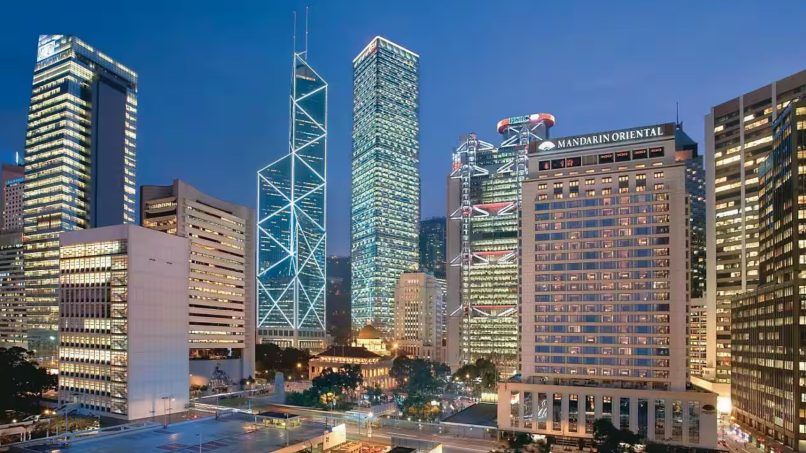
Accommodation in Hong Kong comes at skyrocketing prices. Adding to it is the high population density, which makes accommodation in the city on a smaller side. And if you’re on a tight budget, you might have to settle for cramped spaces.
Luxury hotels
If we talk about the luxe segment, hotels like Four Seasons, JW Marriot, Mandarin Oriental, The Peninsula, St. Regis, The Fullerton Ocean Park and Shangri La are a few names which take the lion’s share. These hotels start from HKD 1,500 and go up to HKD 6,000 a night or more.
Mid-range hotels
Coming to mid-range hotels, one must definitely check out spaces like Kerry Hotel Hong Kong, Marco Polo Hotel Hong Kong, InterContinental Grand Stanford, New World Millennium, The Pottinger and more. As for their pricing, you can expect to shelve at least HKD 900 or more.
Budget hotels
Lastly, there are some bargain beds available at (relatively) reasonable prices for budget-friendly explorers. Places like Chelsea Hotel, Best Western Hotel Harbour View, Cosco Hotel, Grand City Hotel, and Grand Inn are a few options to try out. Generally, hotels on the lower end of the cost spectrum cost around HKD 400.
Airbnbs
Some of the world’s best things (in this case Hong Kong Airbnbs), come in all prices and sizes. Coming to some of the best Airbnbs in Hong Kong, the city has a host of good options starting from HKD 500 and going up to HKD 30,000 per day and more. Of course, you can get a great deal if you’re coming in a large group. For solo travellers, a decent Airbnb can cost around HK 100 per day.
Airbnbs are very popular among travellers, especially because they offer swanky, creative spaces in a city where living conditions are (uncomfortably) cosy.
Bangkok accommodation costs
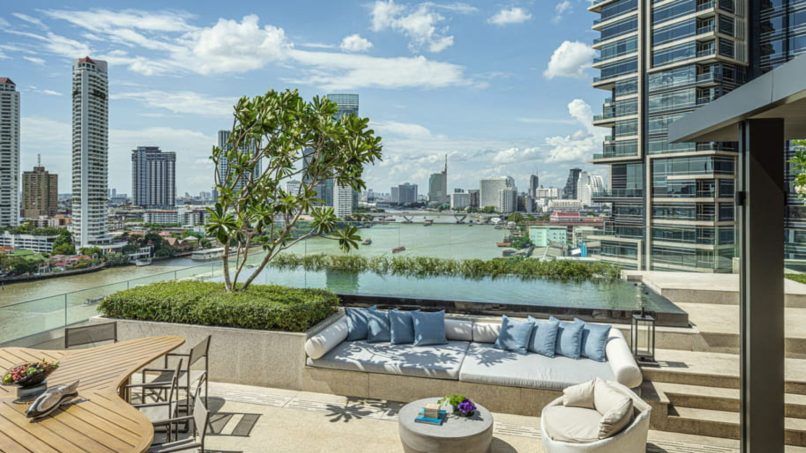
In Bangkok, it’s best to stay along or near Sukhumvit Rd from Soi 1 and as far east as Soi 65. That’s because the area is home to some of the best bars, nightclubs, restaurants and massage shops. However, this privilege comes with a price tag. Some of the other popular tourist areas in Bangkok are Pratunam, Riverside, Khaosan, Siam, Nana Plaza, Silom, Lumphini, and Sathon.
Luxury hotels
Bangkok has a host of luxury hotels for luxury travellers including Mandarin Oriental, Shangri La, Four Seasons, Banyan Tree and more. On average, a 5-star hotel in Bangkok can easily cost around 10,000 baht per night. For premium hotels, expect to pay 5,800 baht a night.
Mid-range hotels
Bangkok
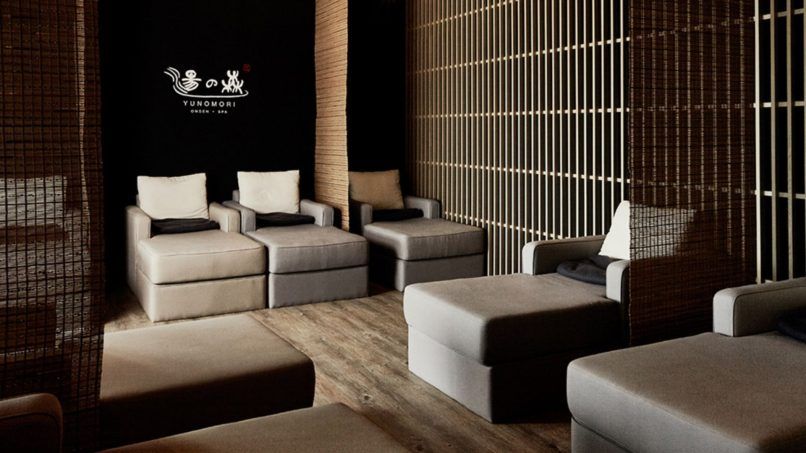
One of the many reasons that makes tourists revisit Thailand time and again is the relaxing Thai massages and spas. Traditional Thai massage, also known as Nuad Thai, is a therapeutic technique that combines acupressure, Ayurvedic principles, and yoga-like stretches to balance the body’s energy lines and nourish your soul and body. While some locations offer traditional Thai massages for as little as 200 baht, you can easily expect posh places and hotels to charge 600 baht or more.
Some of the best spa and wellness destinations in Bangkok include Yunomori Onsen & Spa, Oasis Spa, HARNN Heritage Spa, AWAY SPA and Infinity Wellbeing among others.
In salons, a men’s haircut can cost anywhere between 350 and 1,400 baht. However, a traditional Thai barber shop offers haircuts for as low as 100 baht.
Lastly, gym memberships can also vary depending on where you enrol. If the gym is located on the more expensive side of the city, chances are the rates are on the higher end, too. However, you’ll mostly find great programs that’ll meet your needs and fit your budget. The price of one month of gym membership in a business district in Bangkok is around 1,900 baht. The more expensive ones can easily cost 4,500 baht or more.
Hong Kong vs Bangkok spas, salons, gyms: Verdict
Clearly, Bangkok snatches the affordability factor here as well. Did you know, that some Hongkongers purposely grow their hair out to get haircuts in Bangkok? That’s because the city has a great reputation for offering great haircuts on a budget. Even facials and spas in Bangkok are at around 1/4th the price in Hong Kong at really good service.
Which city would you pick?
(Hero image credit: marla66/ Pixabay)
(Feature image credit: Braden Jarvis/ Unsplash)
Frequently Asked Questions (FAQs)
If you're planning to travel on a budget, Bangkok is a lot more cost-friendly than Hong Kong. Thailand's capital city is cheaper than Hong Kong when it comes to dining, accommodations, shopping, transport and more.

